
In this CME article, explore the mental health consequences associated with the COVID-19 pandemic as well as the potential role for complementary and alternative approaches.

In this CME article, explore the mental health consequences associated with the COVID-19 pandemic as well as the potential role for complementary and alternative approaches.

Here’s how complementary and alternative medicine modalities can help patients with a variety of mental health problems.

This Special Report contains concise reviews of selected CAM modalities and what these modalities can offer patients with a variety of mental health issues.

While COVID-19 has certainly caused a physical health pandemic, it is taking a heavy toll on mental health too, to the point that strategic action is clearly needed.

Psychiatric Times asked integrative psychiatrist James Lake, MD, for insights and advice for patients to reduce stress and take care of their mental health on a day to day basis.
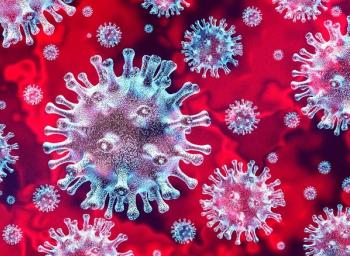
The pandemic has brought about uneasy feelings that can exacerbate mental illness and cause further mental health issues. In its current state, our mental health system is not prepared to deal with what may become a global mental health pandemic, but there are ways to address it.

The economic fallout of the pandemic may continue for years resulting in prolonged unemployment and an increasing percentage of the population with untreated serious mental health problems.

Shifting the internal narrative can enhance resilience.
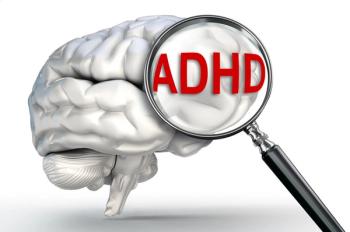
Recent surveys suggest that 7% to 8% of children and 4% to 5% of adults meet ADHD criteria. This CME article provide an understanding of the evidence for the use of complementary and alternative (CAM) treatments for ADHD.
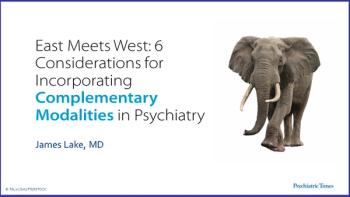
An integrative integrative psychiatrist provides practical guidance for incorporating complementary and alternative medicine into psychiatric practice in the treatment of severe mental illness.

What are the limitations and advantages of biomedicine and Asian medicine? When is it more beneficial to use one or the other? Guidelines for combining the two?
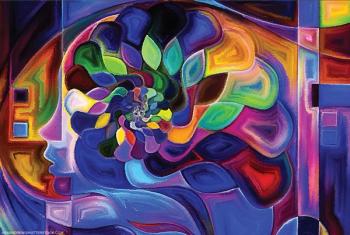
The articles in part 1 of this Special Report provide concise reviews of important research findings and clinical applications of mindfulness meditation, breath practices, and uses of CAM therapies for perinatal depression.

This book is the first scholarly work that attempts to fill the enormous gap in the conventional armamentarium used to treat PTSD.

The limited effectiveness of current approaches provide compelling arguments for effective conventional and complementary interventions aimed at preventing PTSD and treating chronic PTSD. Specifics here.
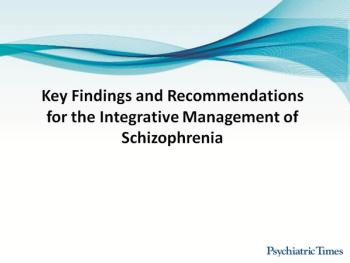
Although there is limited evidence for mind-body treatments for schizophrenia, these approaches may improve overall quality of life without associated risks. More in this slideshow.

Select natural products have been evaluated as adjunctive agents that may be combined with conventional antipsychotics, with promising preliminary findings. Music therapy, meditation, and mindfulness training may improve quality of life for individuals with schizophrenia. Details here.

Most persons who use CAM modalities to self-treat a mental health problem take prescription antidepressants concurrently. Combined use can result in serious supplement-drug interactions.

INIMH is continuing the important work of building bridges between clinicians from different cultures and countries, with the goals of exploring novel treatments and models of care for the benefit of our patients.

Before recommending any natural product to a patient with bipolar disorder, the clinician should be familiar with important safety considerations. This article summarizes provisional guidelines for the use of CAM and integrative therapies in patients with bipolar disorder.

Which of the following complementary and alternative medicine (CAM) therapies may have beneficial effects on symptoms of mild cognitive impairment (MCI) and Alzheimer disease (AD)?

There is promising evidence that some complementary and alternative medicine therapies can alleviate ADHD symptoms. These may include herbals such as Bacopa and Pycnogenol, as well as supplements such as zinc.
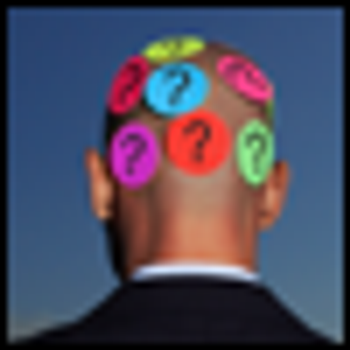
Ongoing advances in functional brain imaging will permit studies on postulated roles of magnetic fields, biophotons, and macroscopic highly coherent quantum field effects on normal brain functioning and mental illness.

Consumers, mental healthcare professionals, researchers and public health advocates can now access comprehensive information on all aspects of integrative mental healthcare via a new Web site launched by the International Network of Integrative Mental Health.
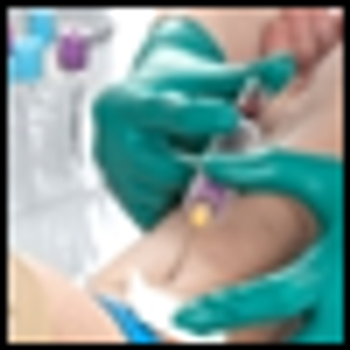
Since the 1980s, there have been growing concerns that chronic cholesterol depletion may actually increase noncardiovascular deaths by suicide and violence-related deaths.

As many as 80% of patients who use herbal preparations and other natural products regard these therapies as the primary treatment of their ADHD symptoms.

Findings of a recent large population survey suggest that 1 in 3 adults in this country (approximately 72 million people) uses 1 or more complementary and alternative medicine (CAM) modalities during any given year.1 Many CAMs are widely regarded as safe on the basis of their established uses in traditional systems of medicine over centuries or longer and their current widespread use in the United States and other Western countries. Unfortunately, there is limited reliable information on potential risks associated with the majority of these approaches.

Contemporary Western psychiatry subsumes diverse perspectives on the so-called mind-body problem, but there is still no consensus on a single best or most complete explanatory model of mind-body interactions. Western psychiatry describes brain function in terms of dynamic properties of neurotransmitters and electromagnetic energy fields.

Everyone is unique at the level of social, cultural, psychological, biological, and possibly "energetic" functioning. By extension, in every person, the complex causes or meanings of symptoms are uniquely determined. The diversity and complexity of factors that contribute to mental illness often make it difficult to accurately assess the underlying causes of symptoms and to identify treatments that most effectively address them.

In part 1 of this column, I reviewed research findings of the most substantiated nonpharmacological and integrative treatments for anxiety, such as kava-kava, L-theanine, applied relaxation, yoga, meditation and mindfulness training, virtual reality graded exposure therapy, and biofeedback training.

Almost one third of US mental health care costs (approximately $50 billion) go toward the treatment of anxiety disorders. Conventional pharmacological treatments for anxiety are often beneficial but have limited efficacy.

Published: June 24th 2020 | Updated:

Published: October 24th 2022 | Updated:

Published: October 18th 2022 | Updated:

Published: October 18th 2022 | Updated:

Published: July 23rd 2013 | Updated:

Published: July 25th 2014 | Updated: